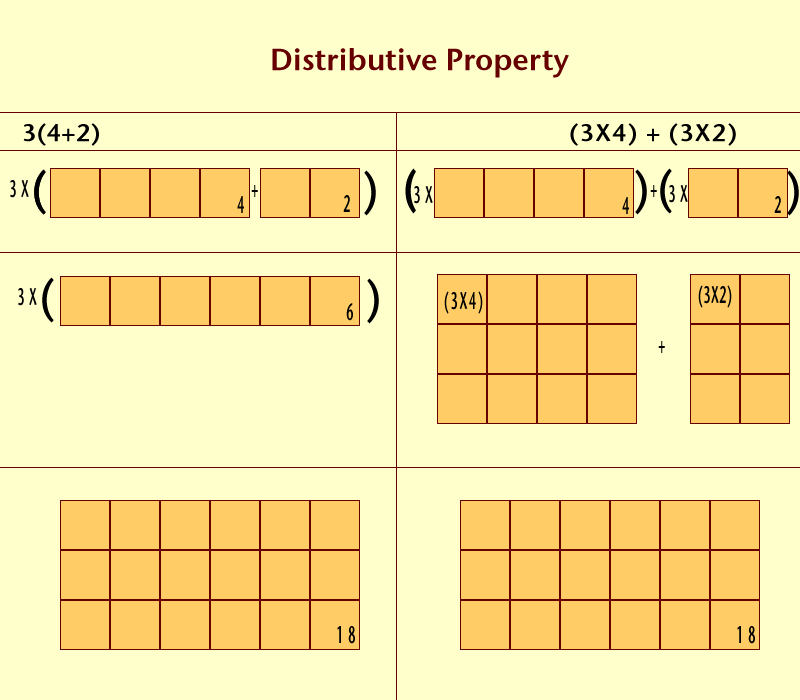Properties of Numbers and Operations
Addition and Subtraction properties
| Number sentence |
Primary Conjecture |
Property & conditions | True/False Statements |
|---|---|---|---|
| n + 0 = n | When you add zero to a number you get that same number. | Identity property of addition: For every real number n + 0 = n |
|
| 0 + n = n | When you add a number to zero you get that same number. |
|
|
| n - 0 = n | When you subract zero from a number you get that same number. | Identity property of subtraction: For every real number n - 0 = n |
|
| n - n = n | When you subract a number from itself you get zero. | Inverse property of addition: For every real number n, there is a real number -n such that n + (-n) = 0 |
|
Multiplication and Division properties
| Number sentence |
Primary Conjecture |
Property & conditions | True/False Statements |
|---|---|---|---|
| n * 1 = a | When you multiply a number times 1 you get that same number. | Identity property of multiplication: For all real numbers a, a * 1 = a |
3 * 1 = 3 |
| 1 * n = n | When you multiply 1 times a number, you get that number. | 1 * 4 = 4 | |
| n / 1 = n | When you divide a number by 1, you get that number. | 5 / 1 = 5 | |
| n / n = 1, n ≠ 0 | When you divide a number by itself you get one, except when the number is zero. | 6 / 6 = 1 | |
| n * 1/n = 1 | Inverse property of multiplication: For every real number n, n ≠ 0, there is a real number 1/n such that n * 1/n = 1 |
3 * 1/3 = 1 |
Multiplication and Division with zero
| Number sentence | Primary Conjecture | Property & conditions | True/False Statements |
|---|---|---|---|
| n * 0 = 0 |
When you multiply a number times zero, you get zero. | Property of zero | 2 * 0 = 0 |
| 0 * n = 0 | When you multiply a zero times a number, you get zero. | 0 * 3 = 0 | |
0 / n = 0, a ≠ 0 |
When you divide zero by any number except zero you get zero. | 0 / 0 = 0 |
Commutative property for addition and multiplication
| Number sentence | Primary Conjecture | Property & conditions | True/False Statements |
|---|---|---|---|
| a + b = b + a | When you add two numbers, you can change the order of the numbers you add, and you wlll get the same answer. | Commutative property of addition: the order in which a pair of addends is added does not affect the sum. For all real numbers a and b, |
4 + 3 = 3 + 4 1 + (2 + 3) =
|
| a * b = b * a | When you multiply two numbers, you can change the order of the numbers you multiply, and you will get the same answer. | Commutative property of multiplication: the order in which a pair of factors is multiplied does not affect the product. For all real numbers a and b, |
2 * 3 = 3 * 2 2 (3 * 4) = 2(4 * 3)
|
| a * (b + c) = (a * b) + (a * b) |
Distributive property of multiplication over addition: For all real numbers a, b, c, |
2(3 * 4) = (2 * 3) + (2 * 4) |
Distributive property
